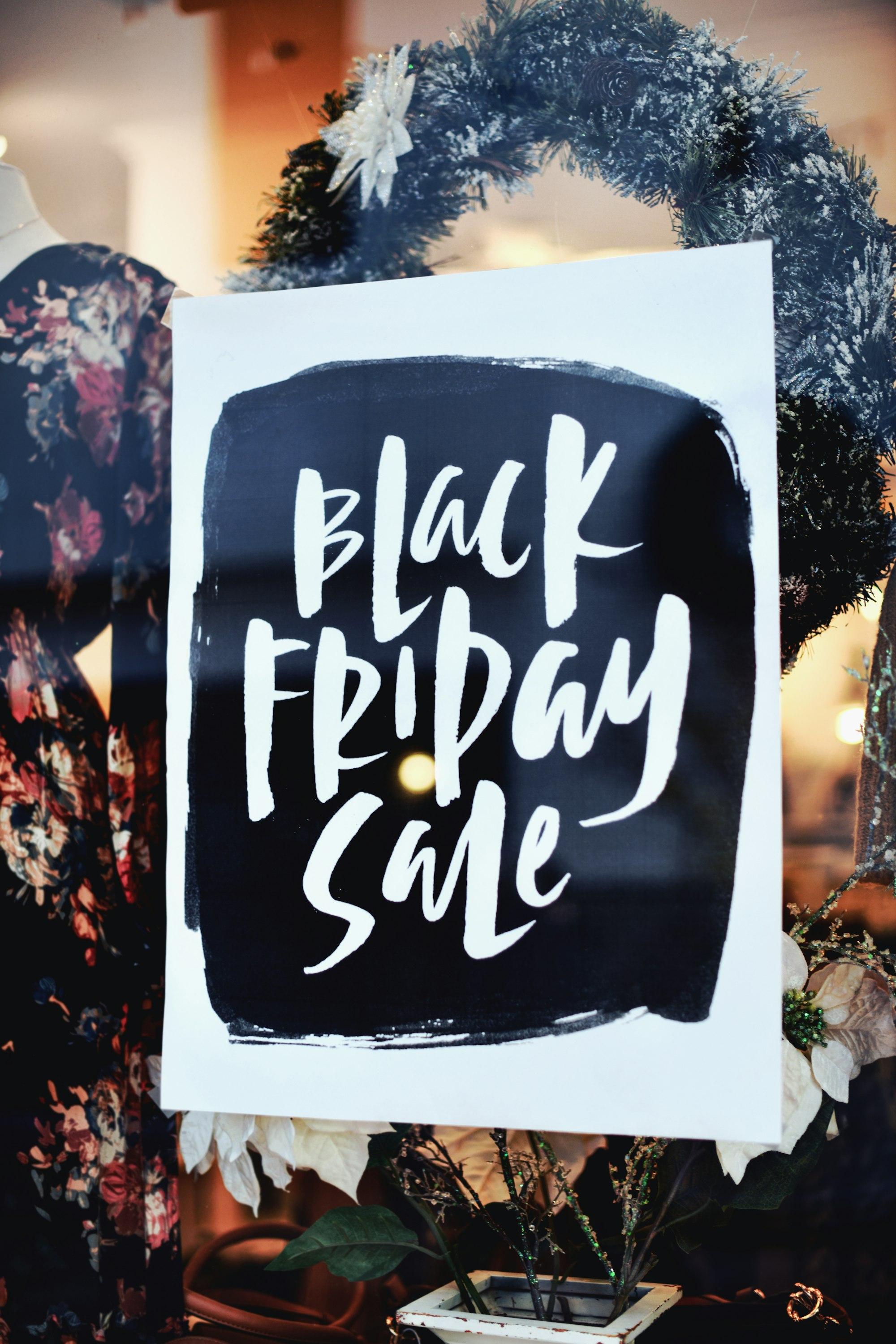What is Black Friday?
Black Friday has evolved from a chaotic day in Philadelphia to a global shopping event that spans both in-store and online experiences. As retailers continue to innovate and adapt, it will be exciting to see how this tradition evolves in the years to come.

Photo by Tim Mossholder
Black Friday is more than just a day for scoring great deals—it's a cultural phenomenon that signals the unofficial start of the holiday shopping season. From its humble beginnings in the 1950s to its current form as a global shopping event, Black Friday has evolved significantly. Let's explore its origins, how it has adapted to modern retail, and its impact around the world.
The Origins of Black Friday
The term "Black Friday" dates back to 1950s Philadelphia, when police officers used it to describe the chaotic crowds that descended on the city the day after Thanksgiving. Throngs of shoppers and tourists flooded the streets, kicking off the holiday season with a frenzy that caused traffic jams, accidents, and other disruptions. Retailers were initially reluctant to embrace the name due to its negative connotations. However, what started as a term of frustration eventually became synonymous with one of the busiest shopping days of the year.
The Retail Rebranding of Black Friday
In the 1980s, retailers seized the opportunity to turn Black Friday's image around. The phrase was reframed to symbolize something positive: moving from financial losses (operating "in the red") to profits (operating "in the black"). By encouraging a day of massive discounts, stores sought to push sales and attract more customers. This retail rebranding was incredibly successful, and soon Black Friday became known as the start of the holiday shopping season when businesses hoped to turn a profit for the year.
Black Friday’s Evolution to Cyber Monday
As online shopping began to gain popularity, Black Friday’s influence extended into the digital world. In 2005, the term Cyber Monday was coined by the National Retail Federation to capture the surge of online shopping that took place after the Thanksgiving weekend. Retailers began offering exclusive online deals on the Monday following Black Friday, appealing to those who preferred to avoid in-store crowds. Today, Black Friday and Cyber Monday are closely linked, with many retailers offering deals that span the entire weekend—both in-store and online.
The Importance of the In-Store Experience
While online shopping continues to grow, the in-store experience still plays a crucial role in Black Friday’s success. Many retailers go to great lengths to create an engaging and exciting atmosphere, offering doorbuster deals, exclusive product releases, and extended hours. The rush of finding the perfect item in-store, often at a steep discount, is a major part of the Black Friday tradition. For retailers, this is more than just a sales event—it’s an opportunity to build brand loyalty and connect with customers face-to-face. Make sure to check store-specific Black Friday sales.
Black Friday’s Shift Post-COVID
The COVID-19 pandemic drastically changed consumer behavior, and Black Friday was no exception. In recent years, many shoppers have shifted toward online shopping to avoid large crowds, leading to a decline in traditional in-store Black Friday events. Retailers have adapted by offering longer sales periods, with many deals starting as early as October. Shoppers are now more likely to spread their purchases out over several weeks rather than waiting for one day of sales. Additionally, the emphasis on convenience, curbside pickup, and fast shipping has grown stronger in the post-COVID era.
Black Friday in Different Countries
While Black Friday originated in the United States, its popularity has spread across the globe. Countries like Canada, the United Kingdom, Mexico, and even Brazil have embraced the tradition, though each country adapts it to fit their own retail culture. For example, in Canada, Black Friday coincides with American Thanksgiving but has grown as an alternative to the traditional Boxing Day sales. In Mexico, Black Friday blends with the country’s own shopping event, El Buen Fin, which takes place earlier in November. Each nation adds its own twist to the Black Friday frenzy, reflecting local shopping habits and consumer preferences.
Quick facts
Why do they call Black Friday?
Black Friday got its name because it refers to the day retailers go from "in the red" (losing money) to "in the black" (profitable) due to the large volume of sales. The term became popular in the 1960s as a reference to the post-Thanksgiving shopping rush.
What day is Black Friday and why?
Black Friday falls on the Friday after Thanksgiving in the United States. It marks the beginning of the holiday shopping season, with retailers offering significant discounts to encourage consumer spending. It is traditionally one of the busiest shopping days of the year.
Is Black Friday really cheaper?
Yes, Black Friday often offers significant discounts, but it's important to research prices beforehand. While many items are genuinely reduced, some deals can be misleading. Retailers may mark up prices beforehand or offer less-than-expected discounts, so it's wise to compare prices.
What are the benefits of Black Friday?
The benefits of Black Friday include access to steep discounts on a wide range of products, exclusive deals, and early holiday shopping opportunities. Many retailers offer doorbuster sales, which allow consumers to buy high-ticket items at much lower prices than usual.
How long does Black Friday last?
Black Friday traditionally lasts for one day, the Friday after Thanksgiving. However, many retailers extend sales throughout the weekend and even into the following week, creating "Cyber Week" with additional online deals.
Is Black Friday the same date every year?
No, Black Friday falls on the Friday after Thanksgiving, which is the fourth Thursday of November. The exact date changes each year, but it always occurs the day after Thanksgiving.
What day do Black Friday deals start?
Black Friday deals traditionally start on the Friday after Thanksgiving, but in recent years, many retailers have begun offering discounts earlier in the week or even at the beginning of November to extend the shopping period.
What day is Black Friday sales?
Black Friday sales occur on the Friday after Thanksgiving, marking the official start of the holiday shopping season. The date changes each year but always falls in late November.
When is Black Friday this year?
Fri, Nov 29, 2024. Black Friday falls on the Friday after Thanksgiving. It typically occurs in late November, marking the start of the holiday shopping season.

Dane Hurtubise
Co-founder & CEO of Spoken
Dane Hurtubise is the Co-founder & CEO of Spoken. He has led two venture-backed companies and is a two-time Y Combinator alum. Prior to Spoken, Dane sold his previous company, Parklet, to Greenhouse Software where he served as VP of Platform and Partnerships. An avid runner, cyclist, and Pilates enthusiast, Dane holds a BS in Electrical and Computer Engineering from the University of Texas at Austin.
Read more